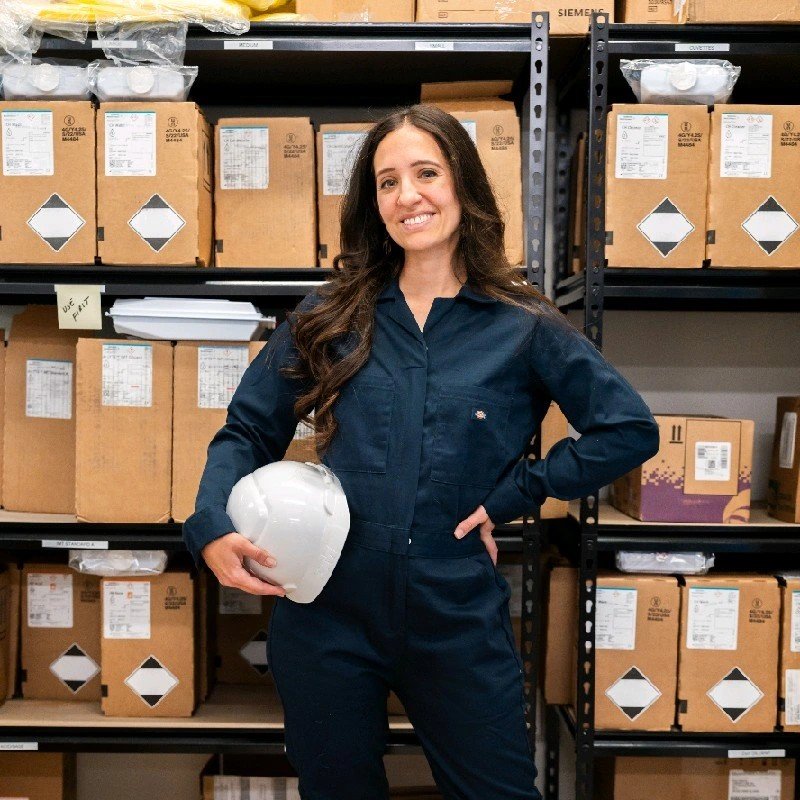AdaMarie Expert Ruha Tacey: Imposter Syndrome
In the best-selling book and AppleTV show, Lessons in Chemistry, we’re frustrated alongside Elizabeth Zott as she faces discrimination (and more) as an extremely intelligent and capable woman in science in the 1950’s. Despite every hardship she goes through, after getting fired from her lab, she still finds a way to be a STEM rockstar with her own cooking show. Elizabeth Zott has the opposite of imposter syndrome.
The term “Imposter Syndrome” has been around for a minute, but more recently re-entered our collective awareness thanks to leading voices like Sheryl Sandberg, the COO of Facebook and author of Lean In. Other leaders in the public eye, such as Condoleezza Rice, Michelle Obama, Nikki Haley, and even Tom Hanks have added their voices to the feelings and experience ofImposter Syndrome, with or without calling it by that name.
I want to pause here to say, WOW. While researching for this article, I learned so much that I found completely fascinating. Hope you will too. Buckle up, let’s get started.
The Women’s Rights Movement had really hit its stride in the 1970’s. There was political energy behind the Equal Rights Amendment and Title IX, both of which aimed to equalize women’s power and presence in arenas such as government and sports. There was pop culture in the form of TV shows like Mary Tyler Moore about strong independent women. And there was the double whammy of rising inflation and unemployment leading to ever more women entering the workforce.
During the same time, a pair of woman scientists named Pauline Clance and Suzanne Imes studied 150 women who had objectively achieved a lot in their careers. This included women in academics and in leadership positions. What they found was that these women were often unable to accept that they had earned their success. Instead, they frequently attributed their accomplishments to – wait, you probably know what I’m going to say next.
But ok, here goes:
1. Luck.
2. Timing.
3. Deception – They had somehow convinced everyone they were more competent than they actually were.
Does this sound horribly familiar? It does to me!
Women aren’t the only ones prone to imposter syndrome, but men do have a bit more of the natural tendency believe they’ve earned their success because of internal worth. Studies by Cornell University (2011), Hewlett Packard 2018), and indeed the Clance and Imes study itself all confirm this. Imposter Syndrome amongst men is both less common and less intense.
It’s probably less exhausting, too.
Management and scientific principles teach us that the first step to changing something is measuring something. Just like we can’t change the efficiency of a reaction without knowing what it started out as, we can’t become more confident in our success without recognizing the forces stopping us from acknowledging it. These studies help us to understand that Imposter Syndrome itself is just a Syndrome. It has no weight in reality. And if it has no weight, then it doesn’t impact our success. Our success, merit, and competency exist on their own, regardless of the stories we tell ourselves about them.
Wrapping this in a neat bow:
The next time you apply for a job that feels completely outside your skill set, or you land that job, or get your first, second, or seventh promotion at that job, remember that you freaking earned this.
The next time you apply for an ambitious grant, you get published, or get a big award and recognition, remember that You Freaking Earned This.
Cause if you were a man, what would you do? You’d be the man. (Sorry, I couldn’t resist just the one Taylor Swift lyric.)
Enjoy your success. You earned it.
About The Author: Ruha Tacey, STEM Education Advocate and Content Creator
Ruha Tacey is a 2012 Chemical Engineer from Auburn University and an engineering career advocate since 2022.
As the daughter of a Mechanical Engineering mom, she's passionate about making women feel comfortable in STEM roles.
After internships at Disney, Chevron, Shaw Industries, and Hunt Refining, she went to work full-time for ExxonMobil and later, Ascend Performance Materials.
As a creator in the Engineering Career space, her message is simple: You have what it takes to be an engineer, and it's worth it.
Follow her on TikTok and Instagram: @futurecheme


